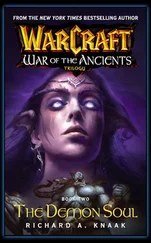Richard Powers - Operation Wandering Soul
Здесь есть возможность читать онлайн «Richard Powers - Operation Wandering Soul» весь текст электронной книги совершенно бесплатно (целиком полную версию без сокращений). В некоторых случаях можно слушать аудио, скачать через торрент в формате fb2 и присутствует краткое содержание. Год выпуска: 2002, Издательство: Harper Perennial, Жанр: Современная проза, на английском языке. Описание произведения, (предисловие) а так же отзывы посетителей доступны на портале библиотеки ЛибКат.
- Название:Operation Wandering Soul
- Автор:
- Издательство:Harper Perennial
- Жанр:
- Год:2002
- ISBN:нет данных
- Рейтинг книги:5 / 5. Голосов: 1
-
Избранное:Добавить в избранное
- Отзывы:
-
Ваша оценка:
- 100
- 1
- 2
- 3
- 4
- 5
Operation Wandering Soul: краткое содержание, описание и аннотация
Предлагаем к чтению аннотацию, описание, краткое содержание или предисловие (зависит от того, что написал сам автор книги «Operation Wandering Soul»). Если вы не нашли необходимую информацию о книге — напишите в комментариях, мы постараемся отыскать её.
Operation Wandering Soul — читать онлайн бесплатно полную книгу (весь текст) целиком
Ниже представлен текст книги, разбитый по страницам. Система сохранения места последней прочитанной страницы, позволяет с удобством читать онлайн бесплатно книгу «Operation Wandering Soul», без необходимости каждый раз заново искать на чём Вы остановились. Поставьте закладку, и сможете в любой момент перейти на страницу, на которой закончили чтение.
Интервал:
Закладка:
And forty-eight hours suffice to prove that her take on the new boy is in every way superior to Kraft's own. Nicolino is not a child; he is a phenomenon, a hell-raiser of perverse proportions impossible for anyone under retirement age on what Linda still insists on calling God's earth to achieve. He moves in with both overnight bags blazing, and before the week is out, he not only owns the ward, he's backdated the deed. After ten days, he's ruling the rotting, disease-infested roost as if that's the way things have been since time out of mind.
Joy is right: this is no geriatric boy. He's an incontestable old-timer, hanging on to the sandlot by his gnarled claws. Linda's not the only one to get solicited. The better part — and Kraft has to admire the squib's taste — of the female staff assembles with bewildered frequency at the ward nurses' station comparing incredulities. Did that kid say what I think he said?
On rounds, Kraft himself hears the precocious lecher come on to Suzi Banks, the Colostomy Girl. Asks to see the lump under her dress. And virtually in the same breath, the mini-mogul hits up on Joleene Weeks, whose response to acute lymphatic havoc has been to drift into a kind of self-induced autism. "You're cute," he tells her. "When did you first do it?"
"Do what?" the girl manages, her first, faltering verbal steps independent of the Chatty Cathy in more than a week.
"Coy one, are we? I like that in a woman. 'Still waters run deep,' and like that."
Still waters? Kraft's pretty sure that catch phrase died out with democracy in America. Where the hell does this kid come from? Kraft tries asking, with a kind of verbal head-pat, in their first conversational exchange. So, uh, you're not from around these parts, are you? Nico snaps at him, "Right down the street. Read the chart, Dr. Killdeer."
Time-scrambled sass, and weirder than it is rude. Who taught this little Spanky to speak? The diction instructor is revealed after a few days when the little old guy produces, from out of nowhere, several gross of comics — a major-league library of them. Complete, contiguous series span the whole illustrated spectrum from classic demigods down to diluted, contemporary, adolescent chelonians. The collection incorporates everything from old Arthropodmen and Vigilante Patrols to Tender Traumas, Tales from Beyond Terrors, strips starring inflatable bubble-figures, Masterplots Illustrated^ (including four-color, frame formats of The Ambassadors and The Magic Mountain), the adventures of Arnie and pal Jimjam (at a ridiculously recently integrated Brookvale High), Green Stingers, Dark Cowls, cartoon anthro rats, cats, and wombats — all the perennials, and some tides so obscure they barely lasted through single numbers, not to mention a European department complete with a Gallic imperial pocket of resistance, two Fleming kids constantly getting one another into big-time trouble, and a cowlicked cosmopolitan news reporter somewhere between fifteen and a hundred fifty years old.
Nico unpacks not only this Rabelaisian bibliotheque, but also a thick, loosely bound Blue Book of his own devising that accompanies the collection. In it, he has carefully cross-listed, in the block letter capitals of a spastic on a muscle stimulant, every single issue number, its publisher, date, and point of acquisition, a synopsis of the adventure, and, of course, the volume's fair resale price. The pricing scheme has only one foot, size 2½, in the realm of supply and demand. For instance, an old Cosmic Sentinel scarce enough to command the bulk of an upper-middle-class ten-year-old's annual allowance even back when Kraft was doing his own international assets trading costs roughly the same as a buck-a-bushel dentist's office throwaway.
His market yardstick has nothing to do with peddlable rarity. It's something altogether different — use value, readability, the catalyzing spark, or some other subjective look under the hood. Whatever his pricing formula, Nicolino imposes mercantile order upon the naive economic anarchy of the pede department. Every item in his comic inventory is available for open circulation, but only after the book value has been coughed up.
He establishes a cashless barter system. "Gotta watch it or those Fed creeps'll be on our cases." Other kids' comics, from parental care packages once shared out freely, are kicked into the kitty according to a rigorous system of swapped debits and credits. He'll take any currency: broken hand-held LCD games, Mars bars (unwrapped are half value), singing rings — anything with resale potential. Nico introduces new commodity wrinkles from day to day, producing, by spontaneous generation, bulk shipments of cinnamon-soaked toothpicks, iridescent kaleidoscope disks, or silly sand. Rooms of the demoralized listless soon start to hum with the biggest trading racket since Green Stamps. He is utterly scrupulous; he will not skim or scalp. If a Fantastic Forces returns to his pool in roughly initial condition, it will earn back its original price or the equivalent in, say, multicolored water-pistol pens. Yet he's dead firm on the rates of exchange. He's not going to trade a good Saviors of the Universe for anything less than two middleweight ghost yarns plus a knock-off heartthrobber. In this manner his catalog steadily grows. But somehow, so do the smaller satellite stockpiles of his trading partners. In a form of perpetual motion, the ward's magic cottage industries begin to generate wealth.
But this free-enterprise zone is the least of Nicolino's impacts on the nation of sick children. He forms the inhabitants, both terminal and transient, into voting blocks, loose political parties that he then coerces into running referenda on the kids' choice for chief nurse and head resident. He presents the results, scribbled in pencil on a nubbly-edged sheet of shabby spiral-notebook paper, to the staff. When the mandate fails to produce the demanded changes, the new ward boss— his own constituency more or less ensured — starts talking hunger strike and sets himself up as People's Government in Exile.
He gradually picks up the tempo of the place until it lags just behind his own. He cannot keep still long enough even to do up his laces. He rallies his troops, splits them into rebus-solving R & D teams. He sets them to work prototyping escape vehicles. He enlists them in cracking jigsaws — a 1,496-piece Garden of Earthly Delights spread across the top of his bedcovers, for want of enough flat space anywhere else. He teaches them to sing innocuous verses that turn obscene when sung as rounds. He organizes gangway-long grudge matches of Smear the Queer with the Ball. He awards the highest-ranking, most loyal of his cadres with revolving tides, offices, and privileges. He designs gambling ladders, plays out pools on sporting events using tons of colored golf tees as the stakes. He endows taffy pulls, paper airplane competitions (prizes for both outrageous design and distance flight), potato-printing marathons — activities selected exclusively for their ability to leave a trail of carnage in their wake.
He doesn't sleep. Some voice must somehow rag him into trying to thrash time while time is still his to thrash. At ridiculous hours, he appears at the bedsides of all-too-willing friends, whispering "Are you awake?" until they are. Then come the first of the expeditions, slipping invisibly past the adult night watch to whatever destinations they might pick their way into without tripping alarms. They shoot for the roof heliport or raid the inner kitchens as if they were Prester John's lost kingdom or the source of the Nile. There they fall upon whatever loose prizes they can carry off undetected.
In less time than it takes him to age another decade, Nicolino wins over the whole turf. Those who had been most frightened by his beak and baldness become the most devoted. That's the source of his manic power. Convince them there's nothing to be afraid of. That you're just one of the gang. The only place where this one's ever going to be inconspicuous is front and center, in the brightest light. In days, Nico comes into his own, kingpin of these victims, the race of those singled out for damage, barred from public playgrounds.
Читать дальшеИнтервал:
Закладка:
Похожие книги на «Operation Wandering Soul»
Представляем Вашему вниманию похожие книги на «Operation Wandering Soul» списком для выбора. Мы отобрали схожую по названию и смыслу литературу в надежде предоставить читателям больше вариантов отыскать новые, интересные, ещё непрочитанные произведения.
Обсуждение, отзывы о книге «Operation Wandering Soul» и просто собственные мнения читателей. Оставьте ваши комментарии, напишите, что Вы думаете о произведении, его смысле или главных героях. Укажите что конкретно понравилось, а что нет, и почему Вы так считаете.












